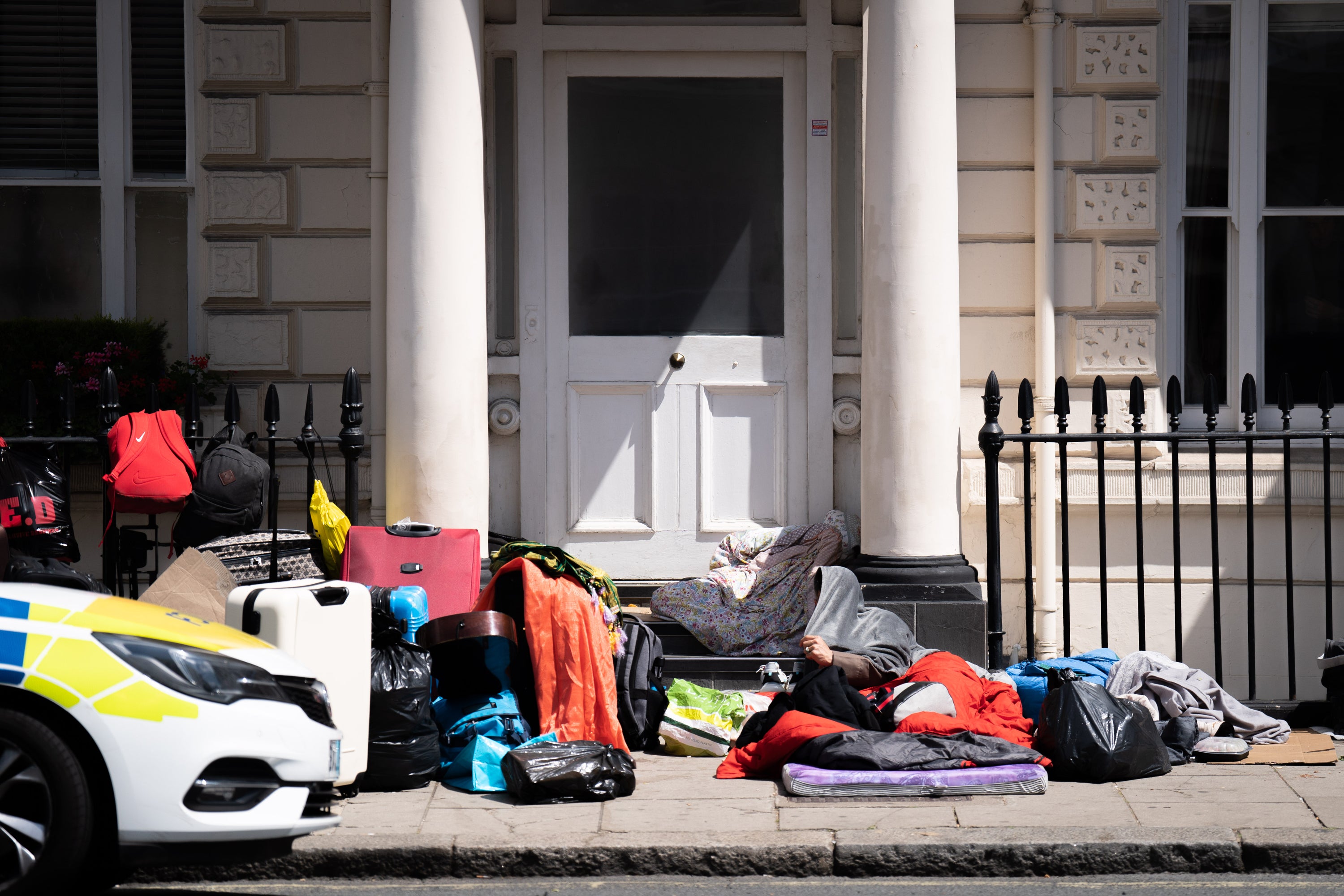Cost of housing an asylum seeker ‘soars from £17k to £41k in just four years’ as hotel use surges
Think tank criticises ‘glaring lack of effective oversight’ of contracts for asylum seeker hotels

Your support helps us to tell the story
From reproductive rights to climate change to Big Tech, The Independent is on the ground when the story is developing. Whether it's investigating the financials of Elon Musk's pro-Trump PAC or producing our latest documentary, 'The A Word', which shines a light on the American women fighting for reproductive rights, we know how important it is to parse out the facts from the messaging.
At such a critical moment in US history, we need reporters on the ground. Your donation allows us to keep sending journalists to speak to both sides of the story.
The Independent is trusted by Americans across the entire political spectrum. And unlike many other quality news outlets, we choose not to lock Americans out of our reporting and analysis with paywalls. We believe quality journalism should be available to everyone, paid for by those who can afford it.
Your support makes all the difference.The average annual cost of housing and supporting an asylum seeker has risen by £24,000 per person in the past four years as the Home Office becomes increasingly reliant on more expensive hotel accommodation, according to a new report into asylum expenditure.
Analysts at the Institute for Public Policy Research (IPPR) have found that the bill for supporting each asylum seeker has risen from £17,000 on average in the financial year 2019/20, to approximately £41,000 in 2023/24. Both of these figures are adjusted to 2023/24 prices to eliminate the impacts of inflation.
The IPPR estimated that the costs of asylum accommodation and support in 2019/20 were £739m. This has risen to an estimated £4.7bn in the financial year 2023/24.
The number of asylum seekers in receipt of support has gone from 51,000 in 2019/20 to 114,000 this year, the report found.
Experts said that the escalating costs had been driven in large part by the lack of available dispersal accommodation, such as shared housing, council flats, or housing association properties.
This has resulted in the extensive use of hotel rooms, which cost around £145 per night per person, compared to only £14 for dispersal accommodation.
There has also been a “glaring lack of effective oversight” of the contracts given to private providers of asylum accommodation, the think tank found.
Researchers also said that a “near-oligopoly position of these contractors over asylum accommodation and the lack of viable alternatives severely limit the Home Office’s ability to address underperformance”.
Funding for asylum accommodation and support comes primarily from the Home Office budget. However in recent years, the Home Office has significantly overspent its planned budget for asylum, border, visa, and passport operations – largely due to the increasing number of people arriving and becoming stuck in the asylum system, the report argued.
This has meant that the budget has been topped up with funding from the Treasury reserve. A portion of the spending on asylum hotels is also taken from the UK aid budget and is classified as overseas development assistance (ODA).
The UK government can use the ODA aid money on domestic issues in certain circumstances, such as to support a person seeking asylum in the first year after arrival.
However, questions have been raised over whether the Home Office can effectively distinguish which asylum seekers have only been in the country for under a year, and therefore make sure the ODA money is being spent correctly.
The IPPR is pressing the government to decentralise asylum accommodation and give more power to the regions. Senior research fellow Dr Lucy Mort said: “The asylum accommodation system is in urgent need of reform. It’s costing far too much while failing to provide people fleeing war and persecution with the safe, clean environments they need.”
Jon Featonby, chief policy analyst at charity Refugee Council, said: “We echo IPPR’s calls, starting with moving control for asylum accommodation away from central government and towards the community, where regional bodies can be empowered to find tailored and affordable solutions that best support people seeking asylum.”
A Home Office spokesperson said: “This government inherited an asylum system under unprecedented strain, with thousands stuck in a backlog without their claims processed, housed in expensive accommodation.
“Many of the criticisms in this report apply to the policies of the previous government and the Home Office is now working at pace to deliver this government’s agenda.
“While it will take time to restore order to the asylum system, we have put in place a serious and credible plan to bring down the backlog by restarting asylum processing and ramping up returns.”
Join our commenting forum
Join thought-provoking conversations, follow other Independent readers and see their replies
Comments